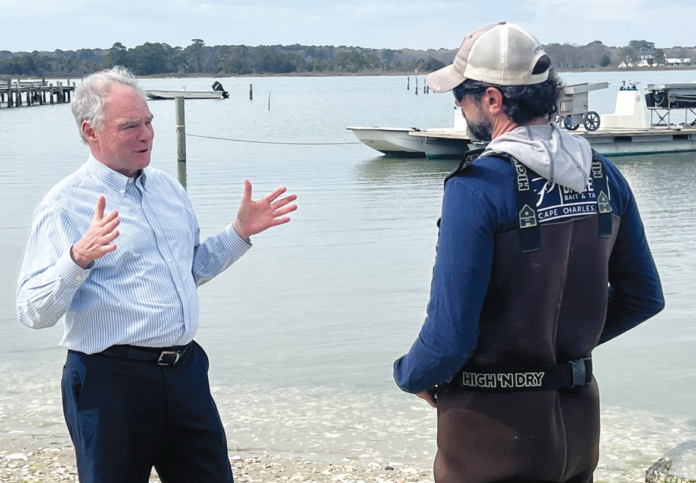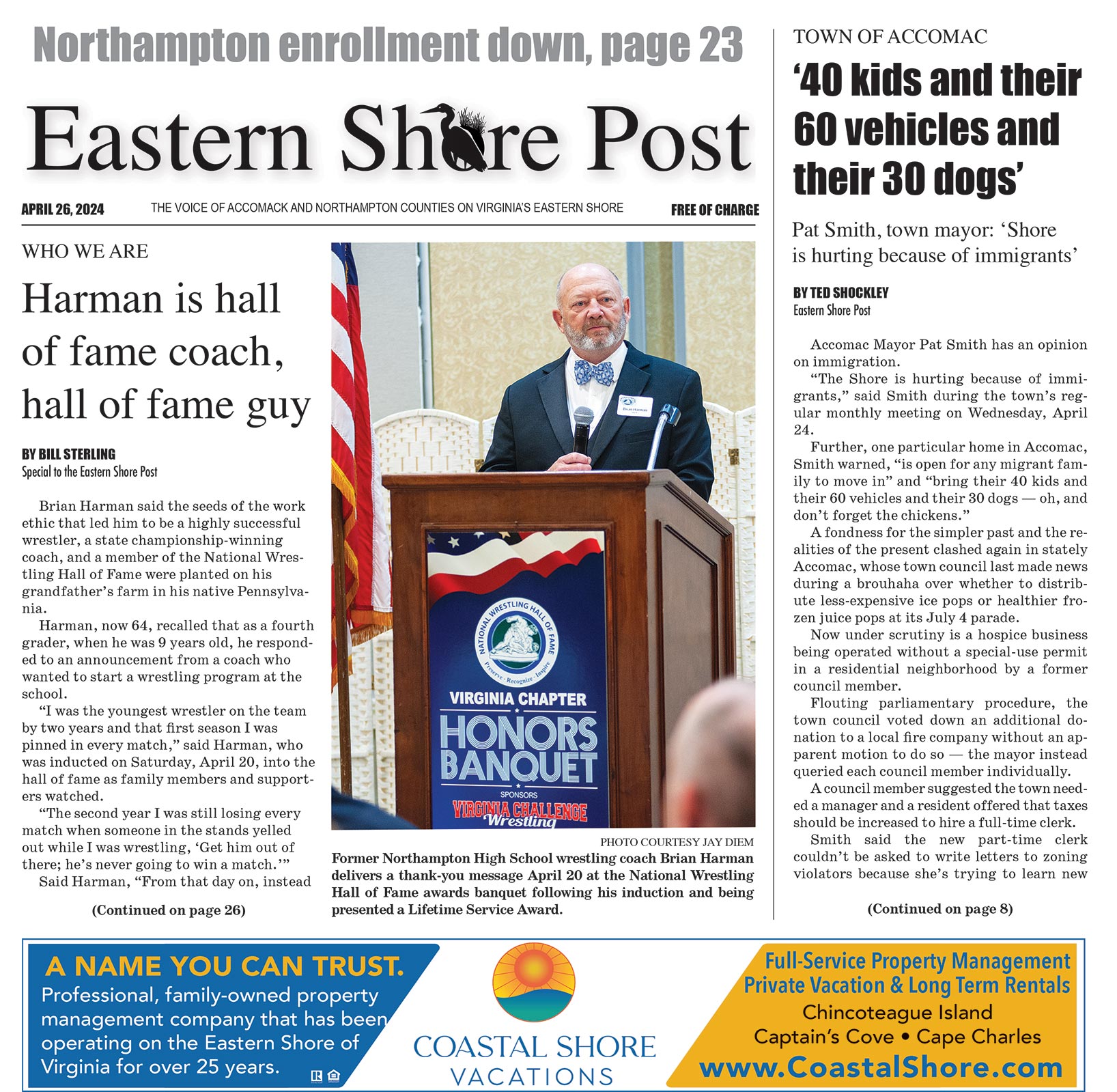
BY STEFANIE JACKSON, Eastern Shore Post —
U.S. Sen. Tim Kaine met with Eastern Shore oyster and clam growers in Cape Charles on Friday, March 17, to discuss proposed immigration reform and other ways to support the aquaculturalists’ livelihood.
Chris Buck, owner of the Ruby Salts Oyster Co., operating on Cherrystone Creek, admitted that it’s difficult to fill open positions in the industry.
Most local workers want year-round employment, which places a burden on business owners to keep employees busy during the off-season, Buck said.
His business recently received a $250,000 maximum award from the Value-Added Producer Grants federal program, which was made possible by the U.S. Farm Bill of 2018 that Kaine helped pass.
The grant will create five new jobs, but filling them will be a challenge.
Kaine explained temporary seasonal work visas were intended for industries that are seasonal by law, but some industries that can operate year-round, like landscaping, are putting extra demand on limited programs.
For example, the H-2B visa program for nonagricultural workers is capped at 66,000 visas per fiscal year — 33,000 from Oct. 1 to March 31 and 33,000 from April 1 to Sept. 30.
Kaine said program applicants compete for workers through a lottery system, and some years are luckier than others for employers.
He wants certain industries, like oyster and clam farming, to be exempt from the visa caps.
That would require writing a bill that is broad enough to include all of the target industries in Virginia but not so broad that employers find themselves right back in the same predicament of relying on chance to fill job openings.
Kaine said he is working with the U.S. Department of Labor and the U.S. Department of Homeland Security on the initiative.
Participants in a roundtable discussion at the Oyster Farm restaurant in Cape Charles highlighted other measures, both legislative and nonlegislative, that support aquaculture.
Marshall Cox called for more attention to be drawn to the environmental benefits of aquaculture.
Commercial watermen who harvest native oysters from the bay typically get the spotlight, but the aquaculture farmers who grow oysters from seed in Eastern Shore creeks are making a big impact, he said.
Oysters are known filter feeders that help clean the waters of the Chesapeake Bay.
On the Eastern Shore, millions of oysters are raised every year, and they are responsible for filtration that occurs at the mouths of creeks, cleaning the water before it reaches the bay, Cox said.
He knows of one local company that alone raises 10 million oysters every year, and the oyster farm cooperatives add millions more to the total.
Tom Gallivan, owner of Shooting Point Oyster Company, in Franktown, voiced his appreciation of government funding for dredging Parting Creek, on the seaside in Northampton County.
He noted that when waterways are too shallow due to a lack of dredging, air can get into the water pumps that flow in algae for the growing oysters to eat.
Gallivan emphasized the importance of preserving and maintaining the waters of the Eastern Shore, like the Machipongo River, a 16.5-mile tidal creek on an “unspoiled, pristine deserted island coast” that is unlike any other place on the East Coast.
Oyster and clam farmers aren’t asking politicians for big-ticket items like high-speed rail or broadband internet, he said.
“We just need to be able to go to work every day.”


